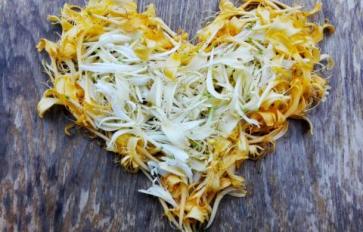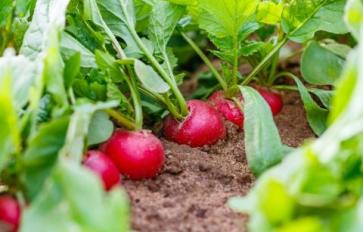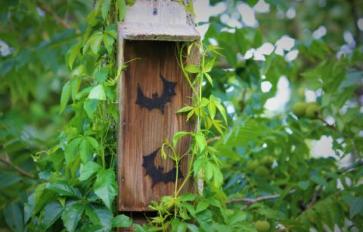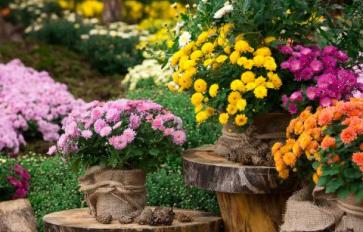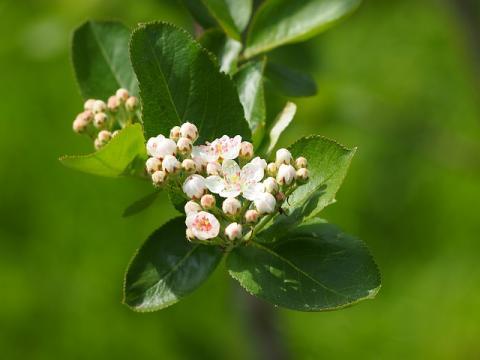
Looking for something fun, colorful and edible to add to your home garden this summer? Grow shrubs! Shrubs are woody perennial plants that usually have low branches. They can be grown for more than just landscape décor, and there are several varieties that can withstand the summer heat.
Check out these 7 sun-loving edible shrubs for your summertime garden!
Sweet Fern (Comptonia peregrine)
Sweet Ferns are green shrubs that adore sunlight, and this makes them perfect for growing in the summer time. It is a low-growing shrub, and it can grow to be about 1 meter in height. The edible part of the sweet fern is the nutlets: tea and spices can be made from the leaves.
Black Chokeberry (Aronia)
Black Chokeberry is a deciduous shrub that can handle partial shade, but they do best out in the hot sun. It is simple to grow, easy to maintain, and effortlessly produces edible black berries every year. The shrub can grow to be 3 to 6 feet tall. The sour chokeberries look a bit similar to blackcurrants, and you can eat them raw. The berries have a good flavor, but the best time to consume them is when they are fully ripe after the first or second frost.
Blueberry (Cyanococcus)
For those who love blueberries, why not try growing your own? The blueberry is a perennial flowering shrub that requires little care, and a lot of sunlight. An important thing to keep in mind when growing blueberry shrubs is that they must be grown in soil with a very low pH balance in order for them to do well.
Strait-Laced Elderberry (Sambucus Strait-Laced)
This shrub has beautiful dark foliage with light pink flowers that start to bloom in early summer. It produces elderberries that become ripe in late summer. These berries are fantastic for making medicine, tea, jelly, and pie filling. Depending on their growing conditions, elderberries can get up to 16 feet high. Another wonderful thing about the Strait-Laced Elderberry shrub is that its light flowers attract butterflies. Ripe, cooked berries are considered harmless. Although the scent of this shrub usually discourages animals from coming close to it, take precaution because it can be harmful to pets.
Pomegranate (Punica granatum)
The vibrant pomegranate is a fruit-bearing, deciduous shrub that is easy to grow, and makes a nice addition to home gardens. It produces bright fruit in shades of red and orange. The skin of pomegranate fruit is considered inedible, but the hundreds of aril seeds are definitely tasty and edible. Read this article for more information on pomegranate as a superfood. (Or grow one as a bonsai tree if you’re short on outdoor space!)
Goji Berry (Lycium)
Goji Berry shrubs grow remarkably well in hot, sunny areas. They can grow up to 8-feet high and wide, but you can choose to plant them in containers or prune the shrubs to keep them within your desired size range. The shrub produces bright orange-red berries that can be juiced, made into medicine, eaten raw, cooked, or dried. Check out this article on the goodness of goji berry!
Natal Plum (Carissa macrocarpa)
This pretty shrub produces white, star-shaped flowers that have a pleasant fragrance. Although the leaves of the Natal Plum shrub are toxic and are inedible, the red fruit of the shrub can certainly be consumed. The taste of the fruit is similar to the tart flavor of the cranberry. For the best results, it is recommended that you grow your natal plum in a location that receives full sun.
These edible shrubs can be grown in or out of containers, although most of them do best when grown in the ground. Growing them in containers allows you the opportunity to grow a variety of shrubs in a wide range of locations within your home garden. If you do decide to grow your shrubs in containers, make sure they receive regular watering and fertilizing to maintain healthy growth. When shrubs are well cared for and pruned, they can last for many years. When pruning your shrubs, making sure to remove all the dead and rubbing branches is very important. The wonderful thing about growing shrubs is that they are great for experimenting with because if you mess up, they can usually bounce back fairly fast.
Stay tuned for more organic home gardening tips and ideas!




